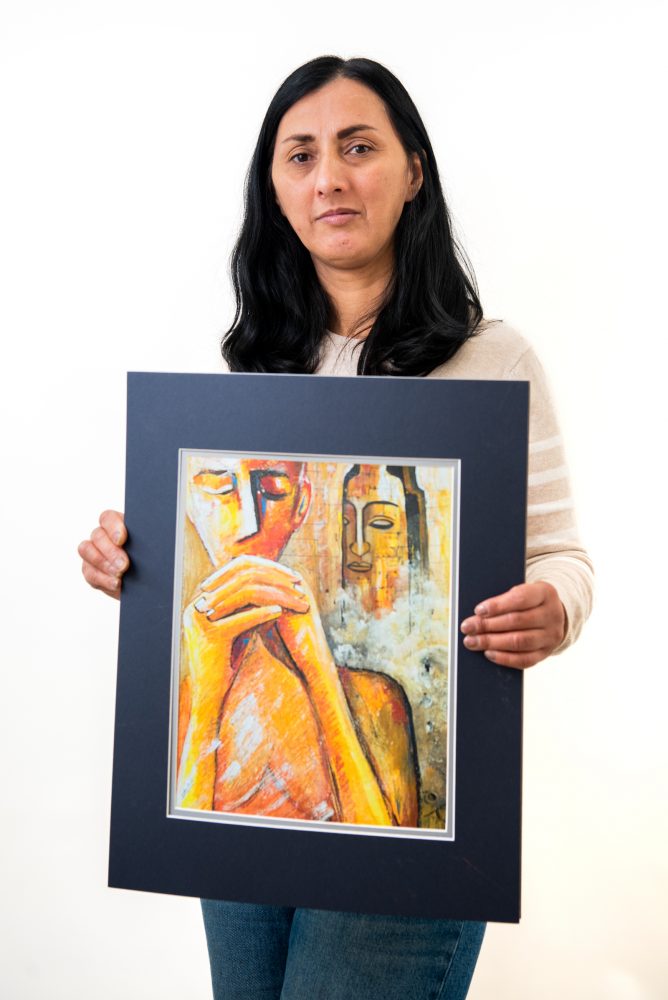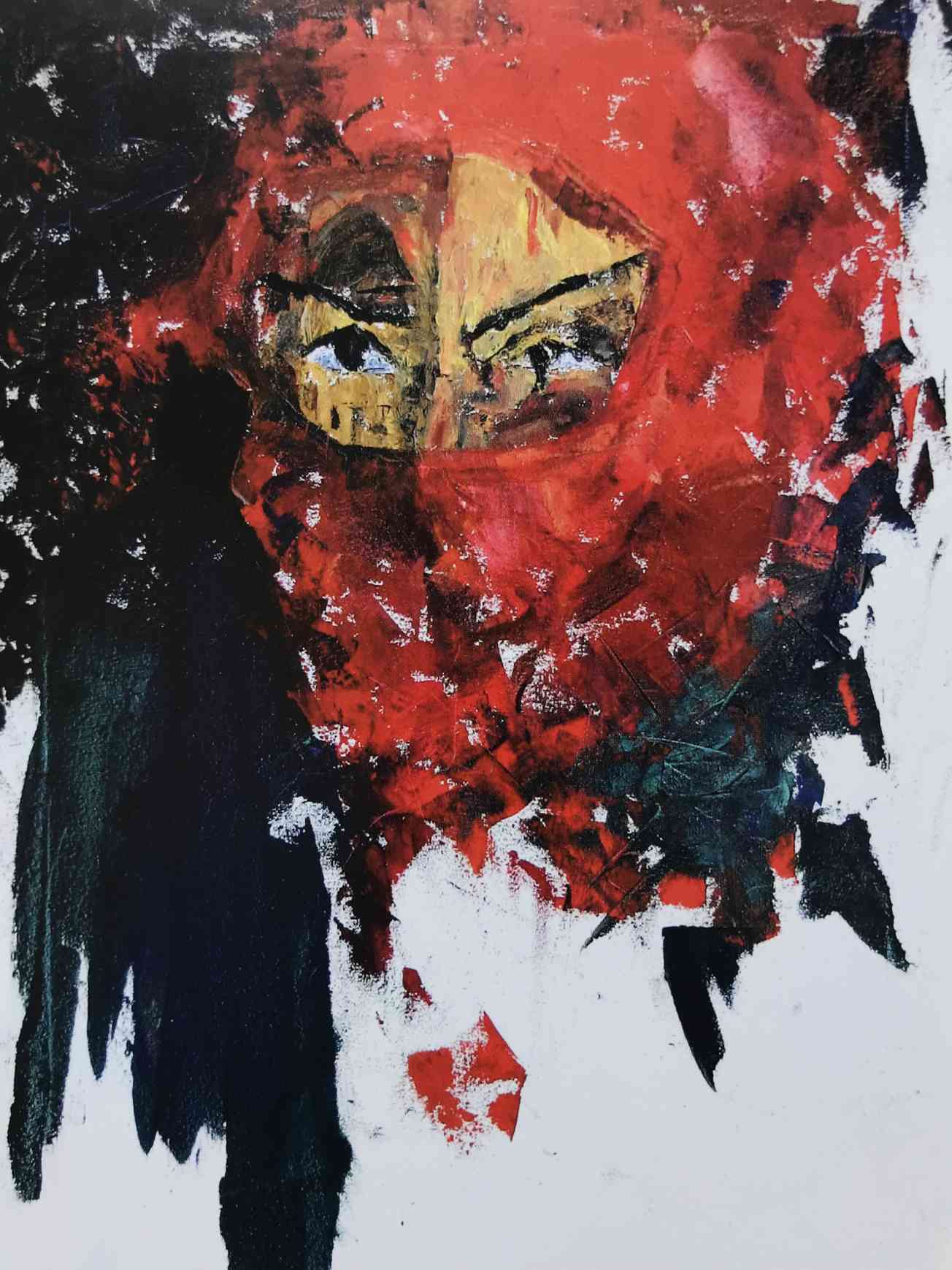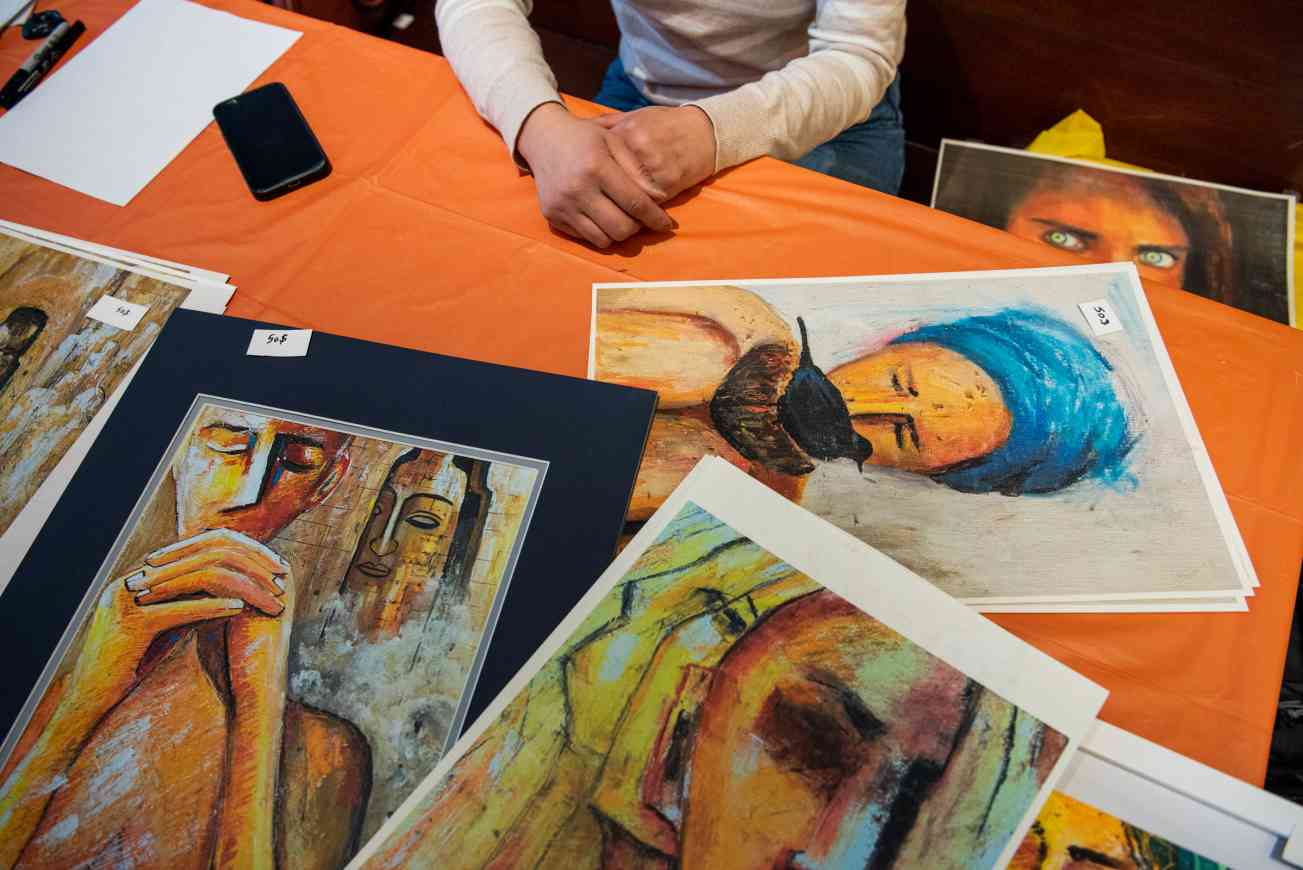When Raising Her Voice Didn’t Work, Refugee Woman Turns to Art

Women inside Afghanistan always have problems, always. Nobody listens. They are always shouting but nobody listens or seeks solutions. This is what the closed mouths in my paintings represent.
If women want to stand on their own two feet, they will face lots of problems because they don’t have backing.
In Persia and Afghanistan we’ve got an idiom that says peeking through or lengthening your neck to peek at something to try to see something. So women [in my paintings] are often peeking and lengthening their necks to see something or be involved. But oftentimes they are rejected and their necks get bent once again. This is the symbolism behind the long necks.
My name is Jahan Ara. My last name is Rafi. I grew up in Afghanistan and I studied art. I have been an artist for the past 21 years. After studying art in Afghanistan in the Fine Arts institute in Kabul I taught and made art inside and outside of Afghanistan.

I started doing art at around age 16 when I was a student in school. One day while I was drawing for fun, my father’s friend was at our home and he looked at it and told me, “It is so beautiful. Why don’t you become an artist?” He encouraged me to see the talent I have and this is what prompted me to pursue art.
I am also passionate about teaching art to girls. I found it really enjoyable because I placed myself in their spot and imagined I was a student again.
Whenever I create art I have a message that I want to relay to my audience. Women have been the victim of a lot of political, economical, and cultural problems throughout time in Afghanistan. My work is related to women and how their words and conditions have not been represented.
Generally when the women in Afghanistan have a problem we ask for help. We raise our voice and say that we have an identity, but we are not heard. For example, in the last year and a half they haven’t been able to go to school, go to work, and not once was there a man who stood by them and raised their voice against all of these things.
I don’t think that things will change for women. Especially since Afghanistan is a traditional society where women don’t have as much freedom and they aren’t seen as an individual. They can’t be an active part of society and they cannot have their own life in the outside world.
Men and women in Afghanistan accept my art. Sometimes they ask about the symbolism behind my artwork. Sometimes when it’s not clear people will look deep inside and they grapple with it and become entangled with the elements of the artwork. If they can’t figure out what’s going on, they’ll ask me. But I like to hear their interpretation of it first because people think so differently and I want to know what they think.
When I see the women in Afghanistan struggling in a patriarchal society I get inspired to create art. This art is representing all Afghan women including urban women, women who live in cities, and women who live hundreds of miles away behind closed doors in traditional and patriarchal homes.
I would like to be one voice with the rest of the Afghan people.

The reason I fled Afghanistan was because the Taliban doesn’t accept artists of any kind.
The day we left was the day the suicide bomber went off at the airport. We took the long route to America. We stopped in Germany for one week and then two months in Fort Pickett. For the past year and a half I’ve been living in Virginia.
I wanted to come to the U.S. because I wanted something to show for my time. This could be education or art, and also the fact that I get to stay with my family.
I have had art exhibits in Germany, India, and the U.S., Canada, Dubai, and Norway.
I can’t speak as to what tomorrow might bring inside or outside of Afghanistan. I’m not in despair and I’m not hopeful.
I cannot be hopeful about the current situation and I cannot despair tomorrow. But perhaps tomorrow will bring something good for Afghanistan.
To see more of Jahan’s art
visit her websiteOur team members obtain informed consent from each individual before an interview takes place. Individuals dictate where their stories may be shared and what personal information they wish to keep private. In situations where the individual is at risk and/or wishes to remain anonymous, alias names are used and other identifying information is removed from interviews immediately after they are received by TSOS. We have also committed not to use refugee images or stories for fundraising purposes without explicit permission. Our top priority is to protect and honor the wishes of our interview subjects.